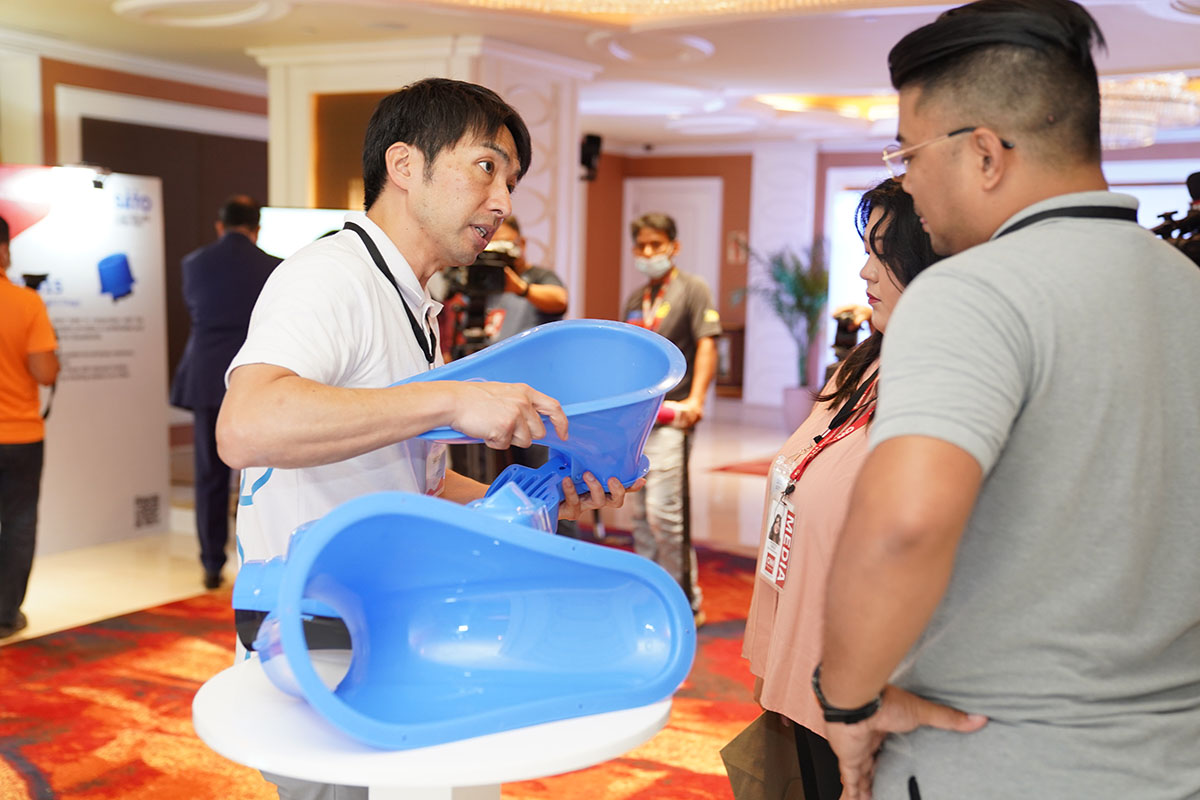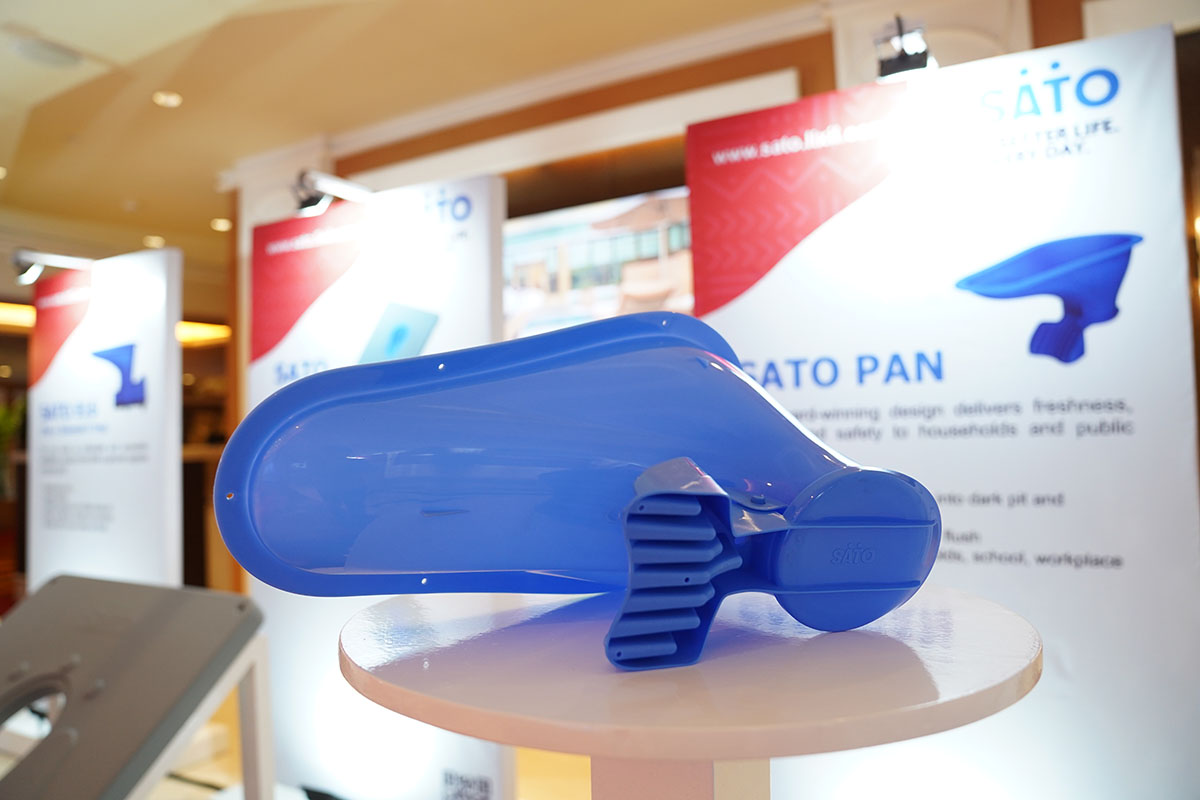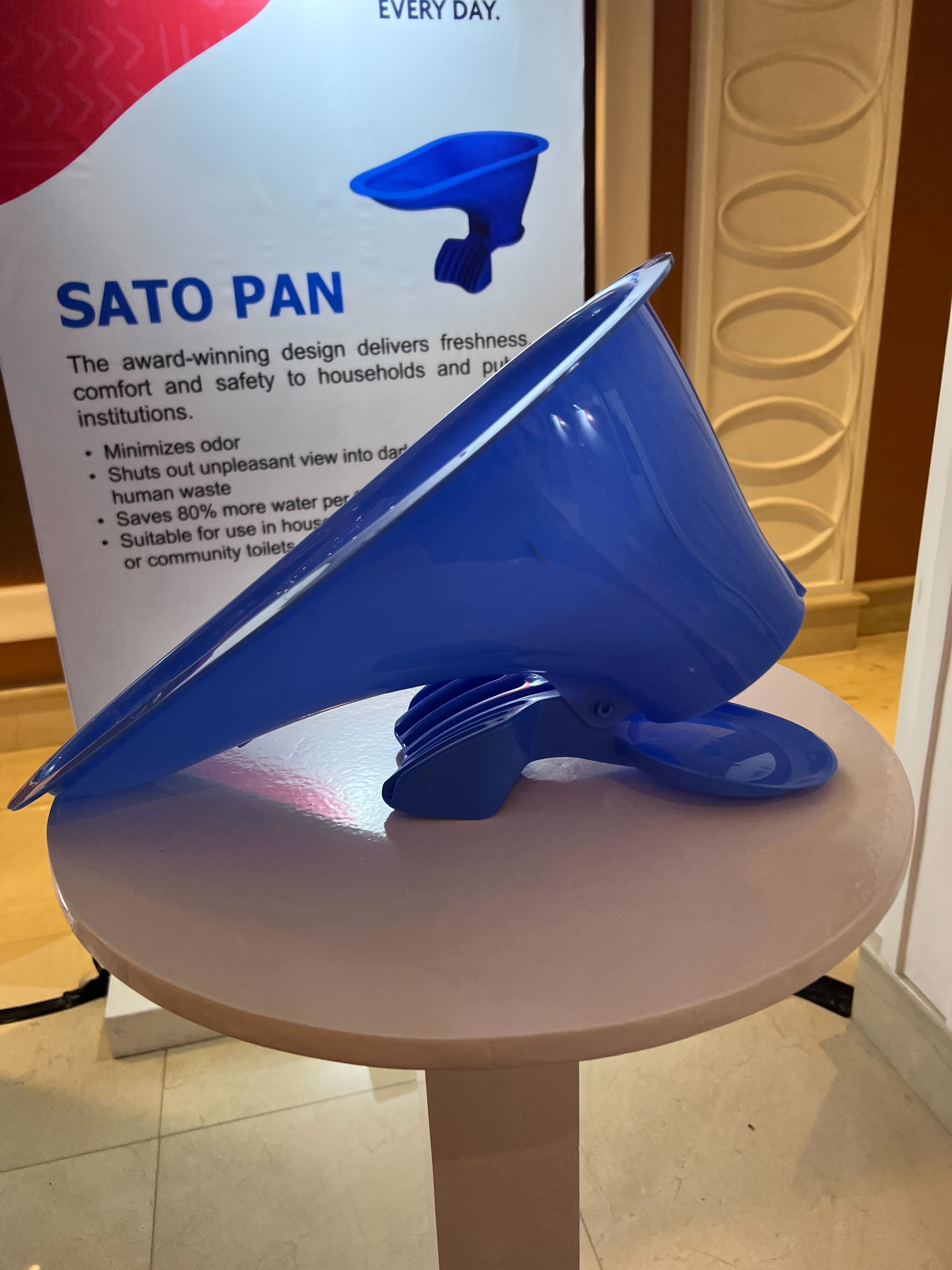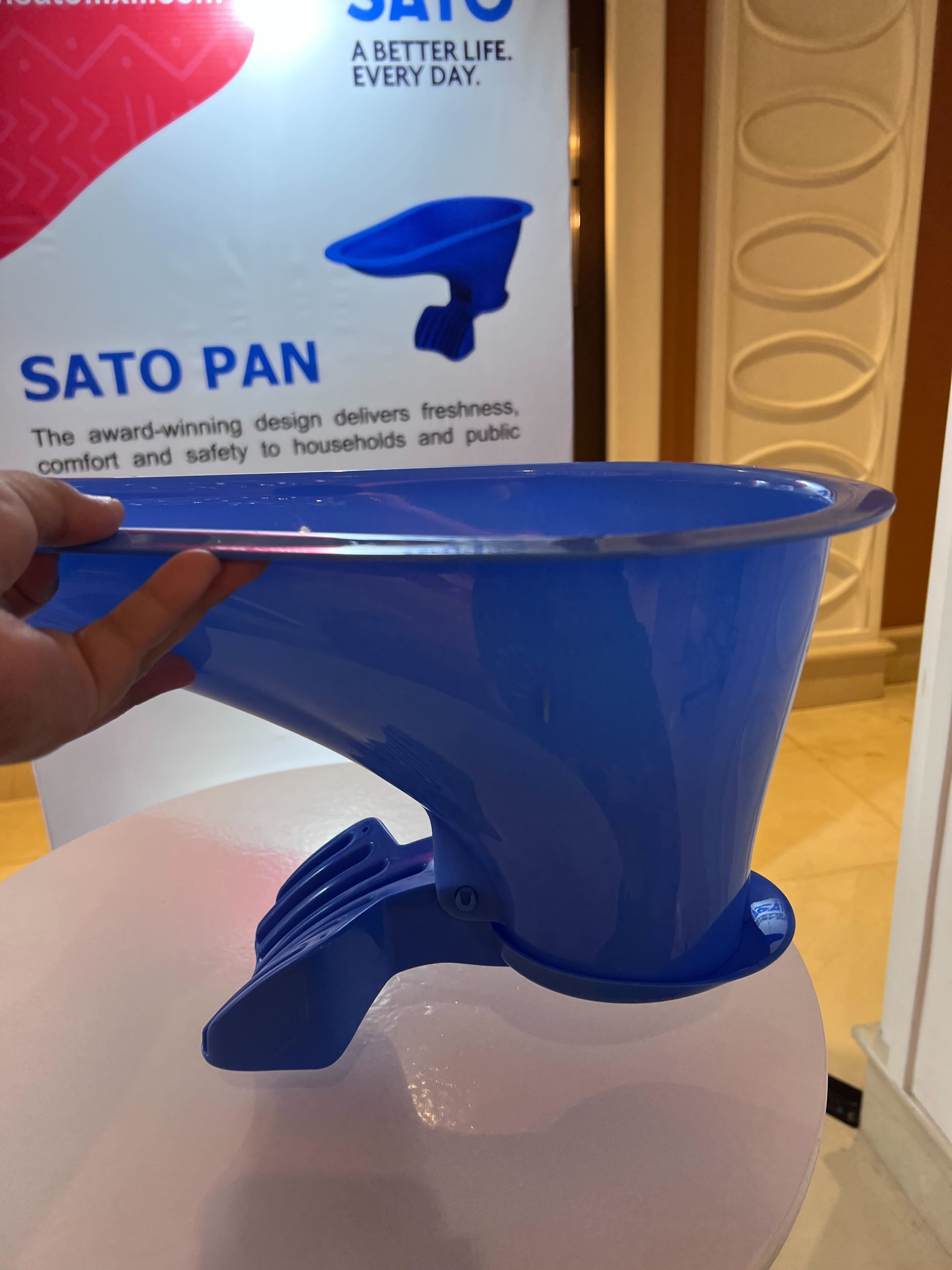An award-winning social business is keen on improving Filipinos’ lives through its innovative sanitation and hygiene solutions.
SATO officially launched in the Philippines on Wednesday, May 17.
It introduced its product line to decision-makers, business leaders, and potential partners in the country in an event held at Okada Manila.
SATO is a social business under the LIXIL Group, a Japanese group of companies that makes pioneering water and housing products.
The brand’s launch in the Philippines is the first in Southeast Asia.
It said this is a step toward achieving LIXIL’s goal to improve the lives of 100 million people by 2025 with basic sanitation and hygiene solutions.
The social business specializes in developing toilet pans and stools, as well as water taps, that are carefully made to match the specific needs of people around the world.
It also developed a toilet pan with a “trapdoor technology” through its SATO Pan product.


SATO said its toilet pan immediately separates the waste deposit from the toilet’s surface to minimize odor and shut out the unpleasant view of the pit and the waste from above.
It also saves 80% more water per flush when installed since the pan only utilizes less than one liter of water. This is 20% less than conventional toilet pans, the brand said.
It added that the toilet pan also promotes increased safety since its trapdoor mechanism helps prevent young children from falling into the pit due to its limited outlet aperture.
The brand said that the product can be installed in new constructions or as a retrofit to existing toilets in households, schools, workplaces, and community toilets.
Moreover, the toilet pan gives a “sanitation for a lifetime” since its trapdoor mechanism has been tested to last the equivalent of 100 years of use by a five-member household.


SATO said that its range of products in the Philippines would be locally made by Manly Plastics, a provider of end-to-end plastic solutions that has been operating in the country for more than 59 years already.
“The launch in the Philippines is a proud moment for SATO and LIXIL as we serve more consumers and institutions and expand our reach and impact into a new region,” Suguru Sakata, SATO’s leader in Bangladesh and Southeast Asia, said.
“SATO solutions are already making a difference in the life of millions across the world as the brand works with partners who believe in our mission of sustainable and safely managed sanitation and hygiene,” he added.
Jonathan Co of Manly Plastic also expressed excitement over the brand’s partnership with a Philippine manufacturer.
“We are thankful to LIXIL for bringing SATO Toilet; this is a much-needed hygiene solution for the country, and at the same time, it will help the economy by choosing to manufacture locally, creating jobs for our citizens,” he said.
Millions still exposed to poor sanitation
During its launch, the brand highlighted data from the United Nations Children’s Fund (UNICEF), which said that around seven million Filipinos still openly defecate or use unimproved toilets as of 2020.
The UN agency said that these are usually found in rural areas.
An official of the World Health Organization said that an absence of a proper toilet “exposes family members and the community to the risk of infection from fecal pollution of food and water.”
“A toilet is a valuable intervention that should be present in every Filipino home. A house is not complete without this facility,” physician Rabindra Abeyasinghe, WHO Representative to the Philippines, said in a 2021 report.
“Unsanitary conditions have been associated with the occurrence of diarrhea, cholera, typhoid fever, and other infectious diseases. Improving sanitation must be everyone’s concern,” he added.
UNICEF said that poor sanitation leads to diarrheal diseases or intestinal worm infections, as well as malnutrition exacerbation.
It also perpetuates a vicious cycle of repeated infection and chronic malnutrition.
Citing data from the 2015 National Nutrition Survey, the United Nations agency said that Filipino children living in houses with sub-optimal water, sanitation infrastructure and environments are 3.5 times more likely to be stunted.
“The links between poor sanitation and child undernutrition are well-established. Let us not allow a generation of children to miss developing their full potential,” Oyunsaikhan Dendevnorov, UNICEF Representative, said before.




